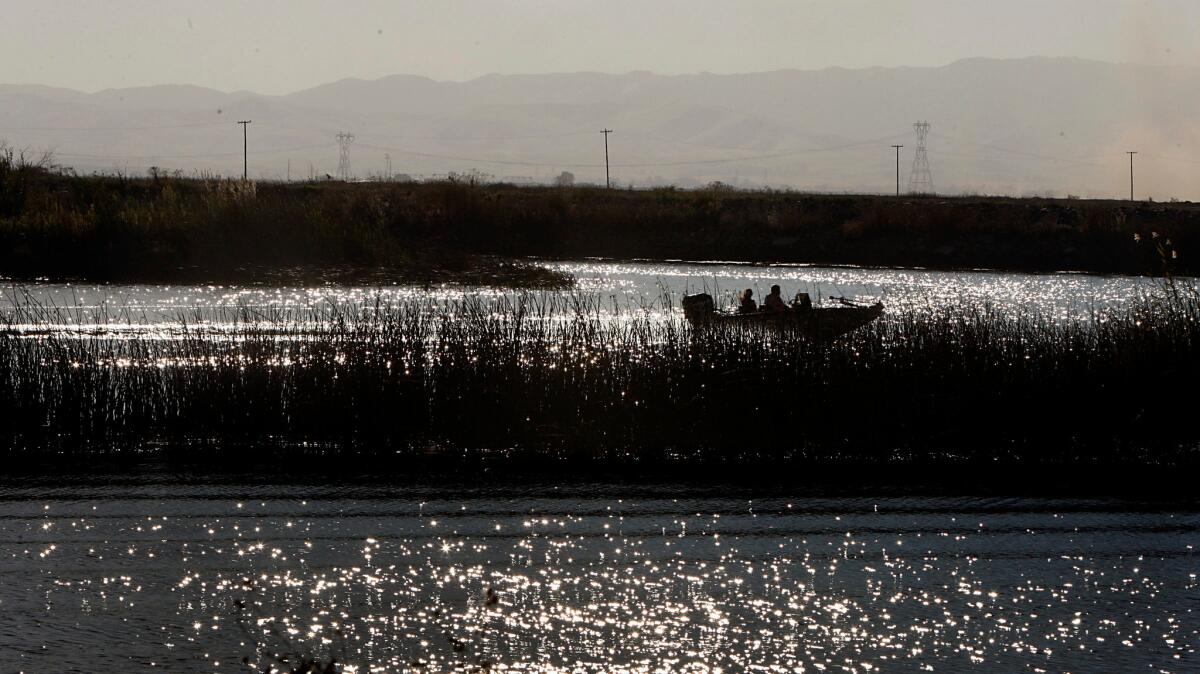California water agencies are seeking a bigger role, aiming to speed up delta tunnel plan

- Share via
California’s powerful regional water districts are working alongside Gov. Jerry Brown to take on more responsibility for designing, building and arranging financing for a $15.7-billion twin-tunnel project that would ship water southward from Northern California as they push to finally close the deal on the controversial plan, two officials working closely on the project told the Associated Press.
Talks among Brown’s office, state agencies and the water contractors that could lessen the state’s hands-on role in one of California’s biggest water projects in decades have been underway since May, according to the two sources, one a senior official involved in the project and the other an employee working closely on the project.
They spoke on condition of anonymity because they were not authorized to publicly reveal details of the talks.
Some water district officials said the move, to be done by a group of regional California water agencies in what is called a joint-powers authority, or JPA, would speed up the mega-project, which they say is needed to modernize California’s existing north-south water-delivery systems.
Critics who oppose the tunnels said the change could allow California’s big water districts to cut corners on issues affecting public safety and the environment.
Asked for comment, state spokeswoman Nancy Vogel said Friday that talks were underway between the state Department of Water Resources and the regional water agencies “on the structure of the entity that would design and build WaterFix,” which is the name Brown’s administration has given the proposed tunnels.
“Details have not been finalized, but our shared goal is a structure that assures the best design and construction talent and protects state oversight,” Vogel said. Brown’s press office did not immediately respond to an email seeking comment.
Brown long has pushed projects that would streamline the delivery of water from the delta of Northern California’s biggest rivers — the Sacramento and San Joaquin — southward to water districts selling water to cities and farms, mostly in Central and Southern California. The current plan calls for 35 miles of two 40-foot-high tunnels.
The group of water agencies, which includes the biggest urban and agricultural water suppliers in the United States, has engaged in years of talks on the tunnels, but the current proposal as described by the two people involved would give the agencies a substantially bigger role in shaping the final outcome.
More to Read
Sign up for Essential California
The most important California stories and recommendations in your inbox every morning.
You may occasionally receive promotional content from the Los Angeles Times.










